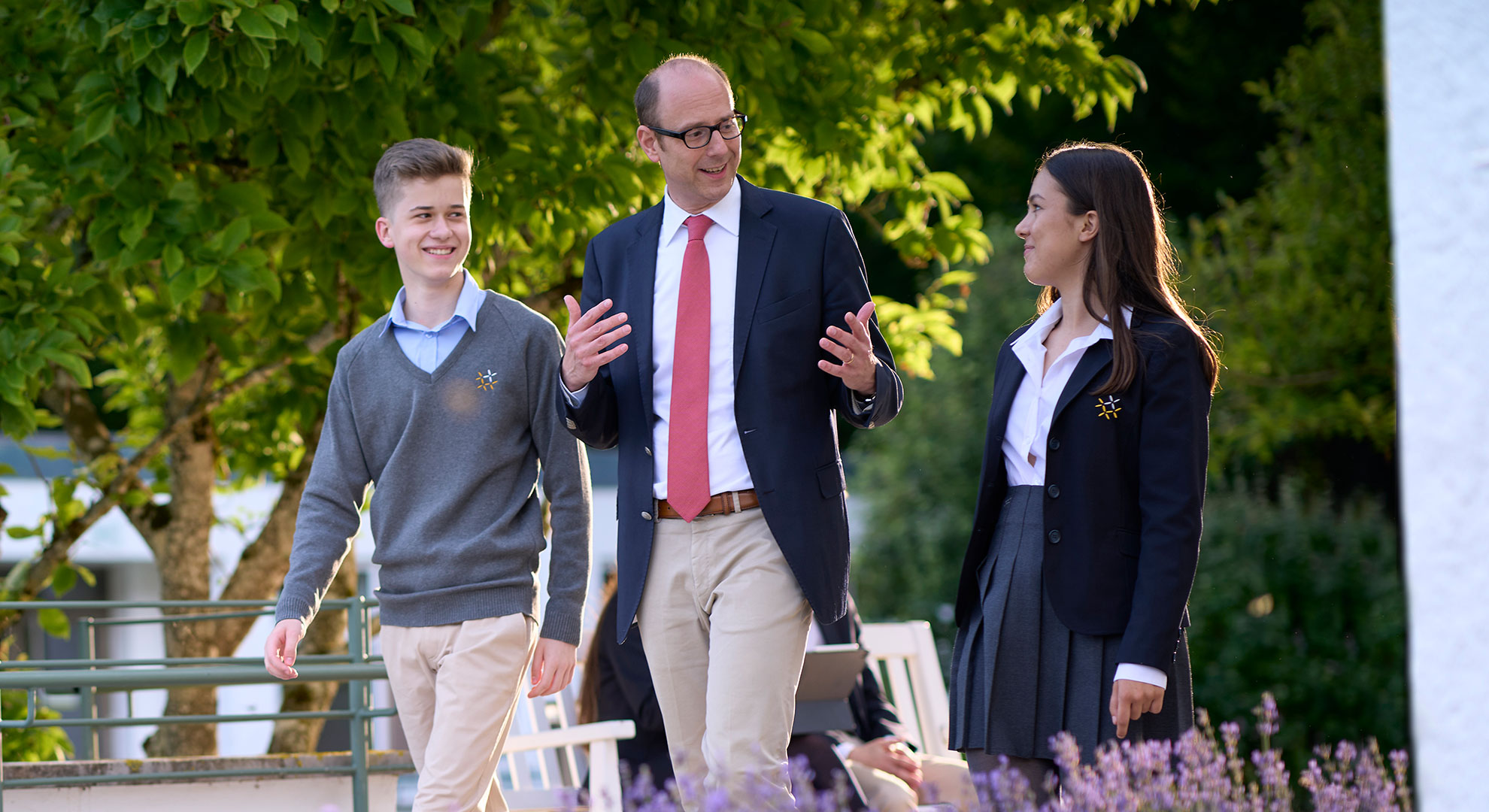Getting a lot done without overdoing things
Joyful learning is stress-free. That’s why we only give homework in subjects where regular practice is important: mathematics, English, Latin and German. These subjects are practised in class during our concentrated study lessons lasting 80 minutes. The class teacher accompanies students, keeping an eye on their progress and providing support where required. Young actors or musicians can develop their talents in our elective course program.
Afternoon sessions are offered from Monday to Thursday. Two afternoons are part of the core program and therefore mandatory. The choice of afternoons is up to the student. One or two afternoon sessions can be added as an option. They are booked for half a year at a time.
The core program includes a recess period and study time in the afternoons. On the other afternoons, elective courses can be taken as an alternative to study time.
The afternoon ends at 4:05 p.m. On Fridays and on days when no afternoon session is booked, the school day ends at 2:05 p.m.

Getting a lot done without overdoing things
Joyful learning is stress-free. That’s why we only give homework in subjects where regular practice is important: mathematics, English, Latin and German. These subjects are practised in class during our concentrated study lessons lasting 80 minutes. The class teacher accompanies students, keeping an eye on their progress and providing support where required. Young actors or musicians can develop their talents in our elective course program.
Afternoon sessions are offered from Monday to Thursday. Two afternoons are part of the core program and therefore mandatory. The choice of afternoons is up to the student. One or two afternoon sessions can be added as an option. They are booked for half a year at a time.
The core program includes a recess period and study time in the afternoons. On the other afternoons, elective courses can be taken as an alternative to study time.
The afternoon ends at 4:05 p.m. On Fridays and on days when no afternoon session is booked, the school day ends at 2:05 p.m.